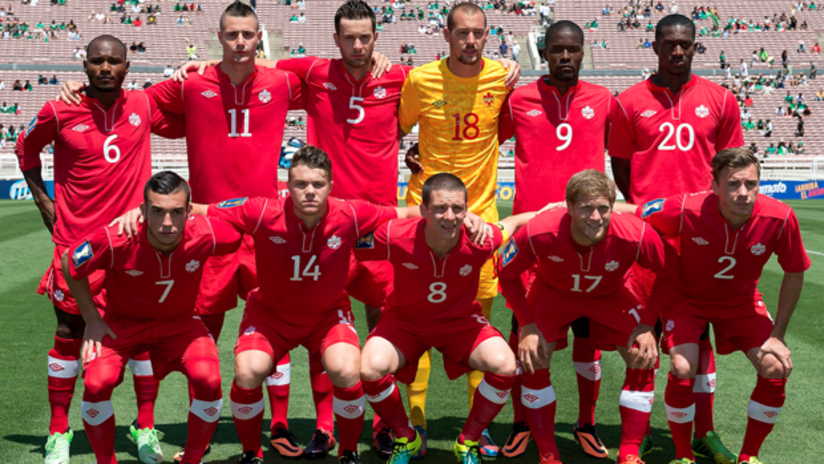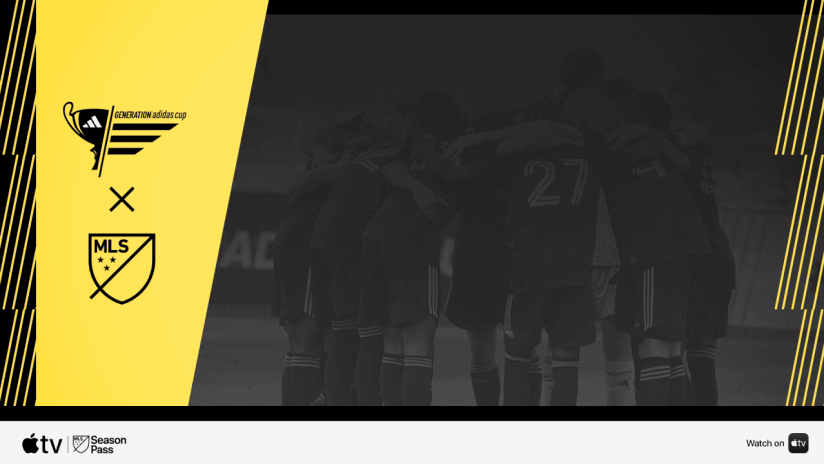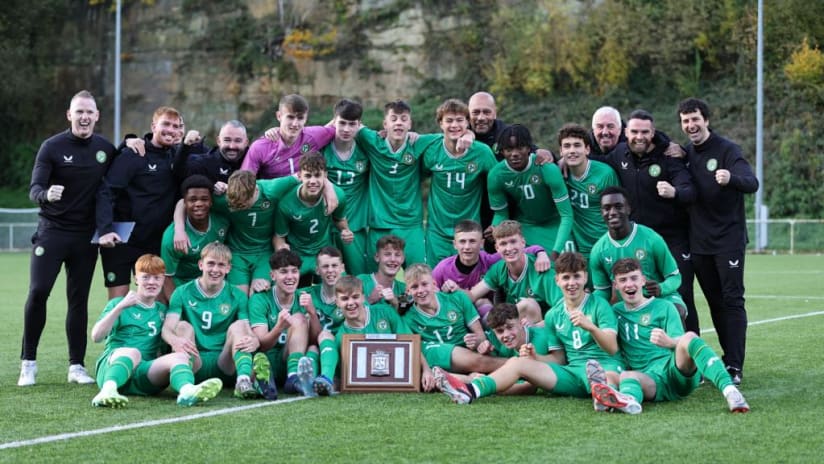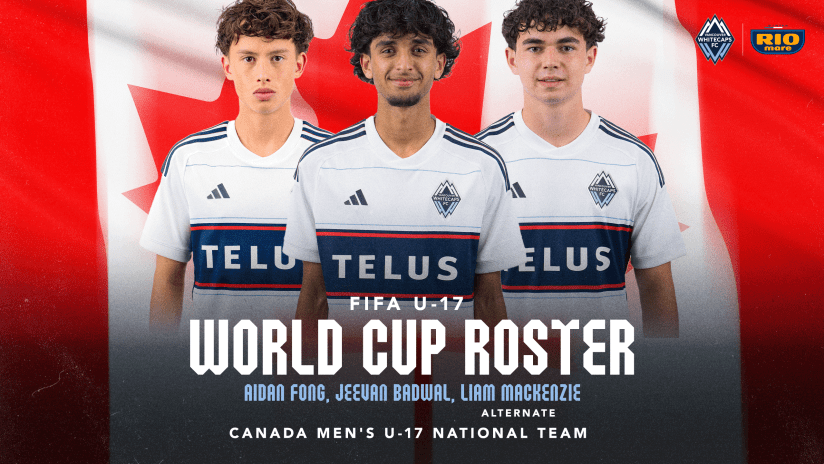The final draw for the 2014 FIFA World Cup is scheduled to take place this Friday, December 6. In the days leading up to the draw, whitecapsfc.com will recount some of Vancouver Whitecaps FC’s different World Cup connections as part of "WFC World Cup Week.”
VANCOUVER, BC – Friday is an exciting day for the soccer world as the groups will be drawn for the 2014 FIFA World Cup in Brazil. For Canadian fans, sadly that means another year of watching other countries battle on the biggest stage.
The Great White North have not qualified for the world’s most popular sporting event since 1986.
<a href="//www.youtube.com/embed/bEZWJ3BqU9A"></a> |
<b>Highlights: Canada fall 1-0 to Slovenia in final match of 2013</b> |
Many will point out the recent struggles of the senior team, but don’t forget that it was not so long ago that the Canadian men’s national team conceded only a single goal in competitive play over a whole calendar year (11 matches from September, 6, 2011 to September 7, 2012).
That team looked capable of potentially making a big breakthrough. That was until October 16, 2012. On that infamous day, it all came crashing down with an embarrassing 8-1 loss in Honduras that knocked the Red and White out of World Cup qualifying.
Since then, some would say the Canadian senior men’s national team has essentially hit rock bottom, but all it not lost.
Although it may seem a distant dream at this point, slowly but surely there are signs of progress at every level of Canadian soccer. Quick fixes have been suggested – foreign players attaining citizenship – but the real solution is one that will take longer to be achieved.
Patience is key
Where can Canada find hope and inspiration for the future? How about Iceland.
Seriously.
Like Canada, the small Nordic country will also not be a part of Friday’s World Cup draw. The difference is that the population of Iceland is approximately 320,000, which is less than Newfoundland and Labrador (526,702, according to the latest census). Canada’s total population is more than 100 times that of Iceland (approximately 35 million).
Despite their limited pool of potential players, Iceland came within one game of making it to their first ever World Cup before ultimately falling to Croatia on the final day.
So how did such a small country come so close? Vision, planning, and patience.
The Football Association of Iceland put forth a long-term plan a decade ago that they are now seeing the benefits of. They focused on creating a well-organized development structure and investing greatly in their youth. That also meant putting in the resources to develop coaches – after all, they’re the ones who develop the players.
It was their goal to ensure that no talented player would go unnoticed and every player’s potential would be maximized.
Now they have top tier talent playing in the best leagues in the world, which has made their national team more competitive than ever.
Though still in its infancy, much of that same philosophy is being used right in our own backyard.
The future starts now
It’s tough to get your hopes up these days, but the journey towards that moment when Canada finally gets back to the FIFA World Cup has already begun, and it starts with our youth.
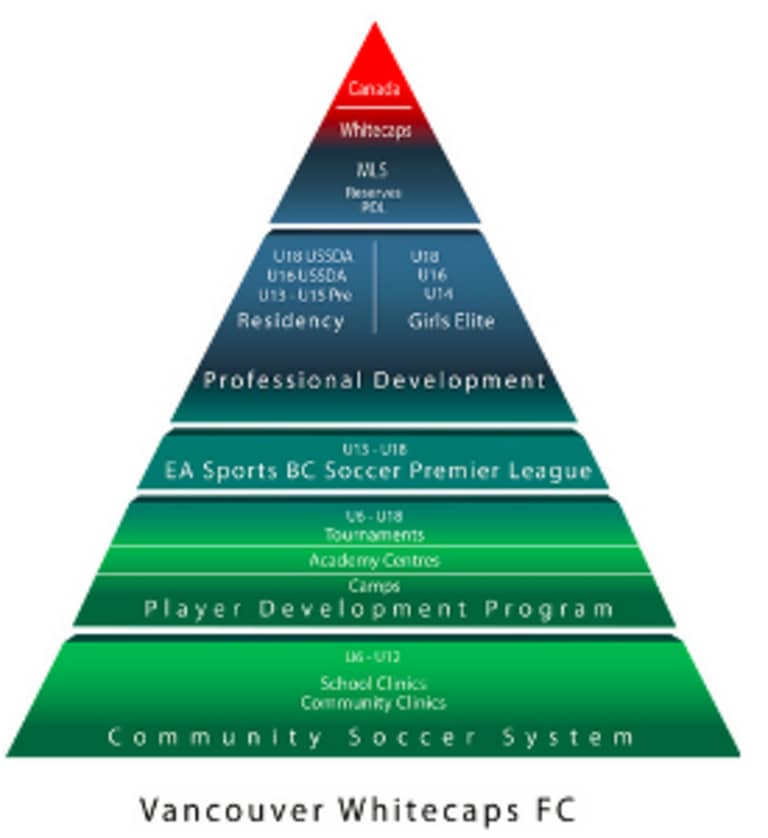
Here on the West Coast, Vancouver Whitecaps FC are implementing a development pyramid (see image) to streamline scouting to areas which may have otherwise been overlooked.
Once such step was the creation of the EA SPORTS BC Soccer Premier League (BCSPL) – a partner league between BC Soccer, Whitecaps FC, and EA SPORTS. Each club in the league is held to a more professional standard.
They must employ a full-time technical director to oversee their programs – many of whom are former Whitecaps FC players such as Dale Mitchell (Coquitlam Metro-Ford SC), Jeff Clarke (Surrey United SC), and Jason Jordan (Fusion FC).
The ‘Caps have also created Academy Centres in regions that aren’t always reached. Already, the club has centres on Vancouver Island, in the Kootenays, the Okanagan, Northern British Columbia, and in Saskatchewan – the latter being the first one outside the province.
Each academy is run at Whitecaps FC standards, with high level professional coaches and regular visits from Vancouver technical staff. And more centres are planned in the future.
What does Canadian senior men's national team head coach Benito Floro think of Whitecaps FC's young Canadian talent? Find out on Thursday in our final WFC World Cup Week installment.

